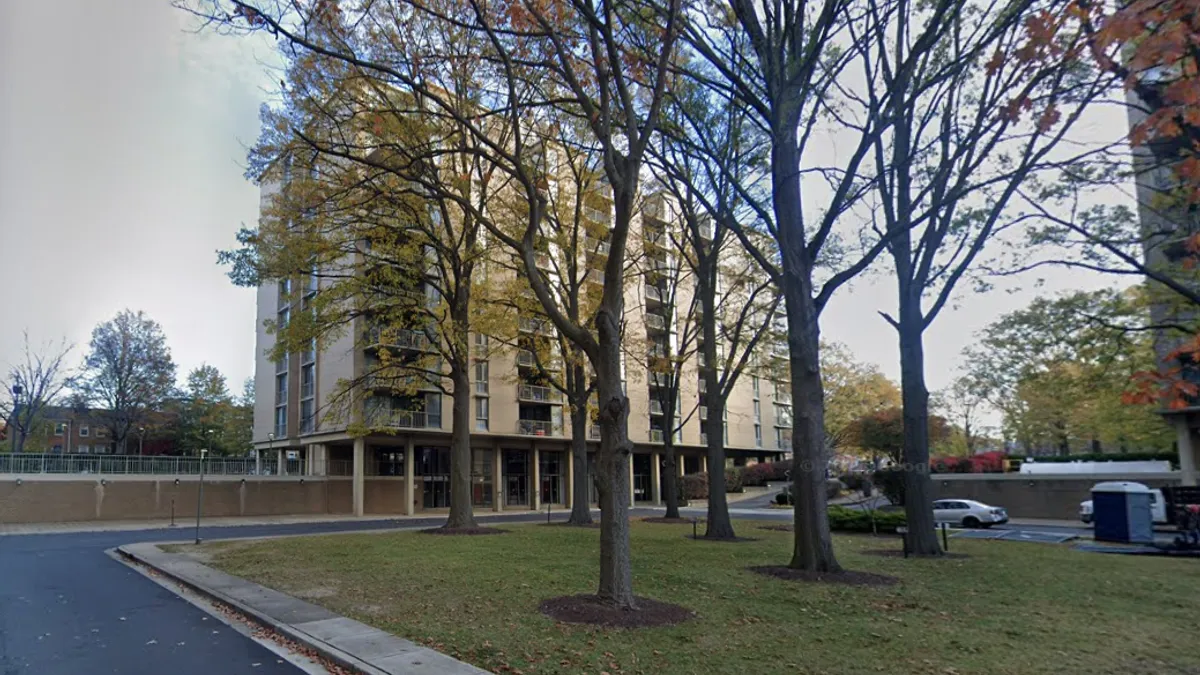This article is the second of two looking at the rise of application fraud in the multifamily industry and how to prevent it. Click here for the first article.
During the height of the COVID-19 pandemic, Southfield, Michigan-based apartment manager Village Green ran into a problem — people were leasing its apartments who shouldn’t have been able to.
Village Green dealt with fraudulent applications in some of its markets, such as Chicago, Minneapolis and metros in Texas, forcing it to remove the fraudsters after they had leased apartments. Ultimately, that cost the properties money.
“That caused some owners to be a little bit more reserved on pushing rent growth because of having to repopulate some of those properties and reduce resident turnover,” said Diane Batayeh, CEO of Village Green.
Although there isn’t a consensus on the best way to recognize and stop this type of fraud before it happens, technology has helped. “I think operators and owners have gotten more savvy and there have been more technological solutions available to do that deeper dive,” Batayeh said.
Still, local laws aren’t making solving the problem any easier.
Different solutions
Catching scammers before they sign a lease is often easier said than done.
For many operators, stopping phony applications starts with leasing agents. Often they’re excited about getting a lease signed.
“We continue to make sure that our site teams are being vigilant all the way through the process,” said Mike Gomes, chief experience officer at Atlanta-based owner and manager Cortland.
If leasing agents are vigilant, they'll make a call to a human resources department to verify income, which isn’t always common practice, according to Janine Jovanovic, chief growth officer of Vienna, Virginia-based apartment owner, manager and developer Middleburg Communities.
“There are so many traditional methods available to protect yourself that I don't know that I need to spend X dollars per unit per month on a tool when I can just use the services that the really smarter operators are using,” Jovanovic said.
But Snappt CEO Daniel Berlind said he has seen cases where applicants will use fake pay stubs from phony companies.
“These days with PDF editors and photo editors, it [fraud] is completely undetectable by the human eye,” Berlind said. “If an applicant puts a friend as an employer, there is no way that a leasing team could ever determine whether or not one of these documents is authentic, even through calling and referencing.”
Relying on technology
For some companies, technology offers the best way to tackle fraud. Wellington, Florida-based Bainbridge Cos. is piloting a system from Snappt that puts U.S. financial documents through a fraud detection platform at properties where it’s seen issues with application fraud.
“It’s just to eliminate the administrative burden on the teams,” said Dana Caudell, president of property management at Bainbridge. “Right now, your managers or your assistant managers are trying to decipher check stubs and W-9s and trying to verify on the income side.”
For Debi Wherry, senior vice president of operations for Memphis-based apartment owner and manager Fogelman Properties, technological solutions are essential. “Qualifying steps have become much more detailed and time-consuming and the use of products that will help verify paystubs as well as social security is almost a must,” she said.
Once companies identify fraud, Gomes said they need to pinpoint where it’s coming from. If fraudulent applications originate from specific marketing channels, operators may shy away from those outlets because their site teams are spending an inordinate amount of time with people who aren’t credible prospects.
“We monitor it on literally a property-by-property level,” Gomes said.
Legal concerns
Regardless of how property managers decide to do background checks, they’re running into laws in places like California, New Jersey, Seattle and New York City that restrict searches on criminal background checks or evictions, stopping how deep they can dig into prospects’ backgrounds.
“In some cases, the government regulations didn't allow you to [use technological solutions to do a deep dive into a prospect’s background],” Batayeh said. “That definitely is an impediment.”
Without the use of certain background checks, it’s much more difficult to stop fraud, according to Nicole Upano, assistant vice president of housing policy and regulatory affairs for the National Apartment Association. “They are legitimate business practices and help ensure that housing providers are making unbiased decisions,” she said.
In Los Angeles County, for instance, there is an eviction moratorium for non-payment from residents until June 2023. “Ultimately, you have residents who go in there under fraudulent circumstances, they're not paying their rent and you can't get rid of them,” Upano said.
Without credit checks, eviction checks and criminal history checks to rely upon, Berlind said income checks become more important than ever. ”We might get to a point where they are the only documents that are able to be collected and verified,” he said.
Click here to receive multifamily and apartment news like this article in your inbox every weekday.


















